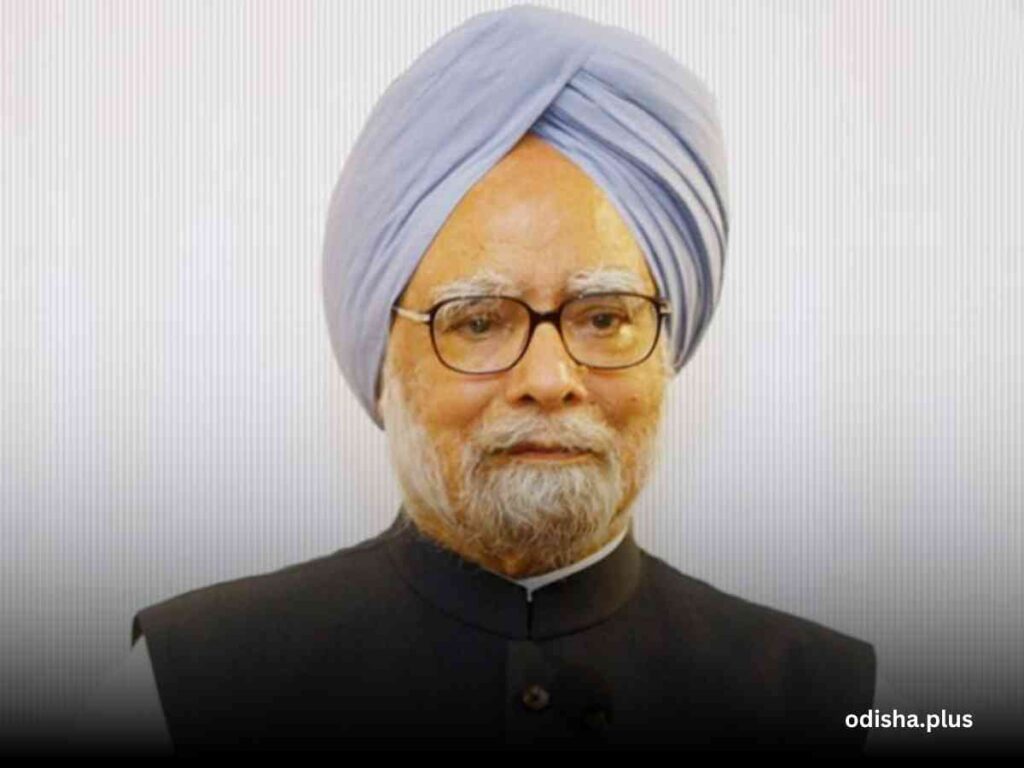OdishaPlus Extends Heartfelt condolences to Dr Manmohan Singh, an eminent figure in Indian politics and economiC Reforms
OdishaPlus Bureau

Manmohan Singh was a prominent Indian economist and politician who served as the Prime Minister of India from 2004 to 2014. A member of the Indian National Congress party, Singh was widely recognized for his pivotal role in liberalizing the Indian economy during the early 1990s, a period that marked a significant shift in India’s economic policies and practices.
Born on September 26, 1932, in Gah, Punjab, which is now part of Pakistan, Singh’s early life was shaped by the tumultuous events surrounding the partition of India in 1947. He and his family migrated to India, where he pursued his education with great dedication. He completed his undergraduate studies at Panjab University, followed by advanced degrees from the University of Cambridge and the Massachusetts Institute of Technology (MIT), where he specialized in economics. His academic background laid a strong foundation for his future contributions to economic policy and governance.
Before ascending to the role of Prime Minister, Singh held several key positions within the Indian government. Notably, he served as the Finance Minister from 1991 to 1996, a critical period during which he implemented a series of economic reforms that transformed India’s economy from a closed, centrally-planned system to a more open and market-oriented one. These reforms included measures to reduce import tariffs, deregulate industries, and attract foreign investment, which collectively spurred economic growth and development.
Singh’s tenure as Prime Minister was characterized by significant economic growth, with India experiencing one of its highest rates of GDP growth during his period. His government also focused on social welfare programs aimed at reducing poverty and improving access to education and healthcare. Additionally, Singh worked to enhance India’s global standing, fostering diplomatic relations and positioning India as a key player on the world stage.
Known for his calm demeanor, integrity, and technocratic approach to governance, Singh earned respect across political lines. However, his government faced challenges, including issues related to corruption scandals and the complexities of managing a coalition government. Despite these challenges, Singh’s leadership style and commitment to economic reform left a lasting impact on Indian politics and policy.
One of the hallmark initiatives of Singh’s administration was the National Rural Employment Guarantee Act (NREGA), which aimed to provide at least 100 days of guaranteed wage employment in a financial year to every rural household. This landmark legislation provided a safety net for the rural poor and empowered them by giving them a legal right to work. Singh’s government also made significant strides in improving the country’s infrastructure, including investments in roads, railways, and power generation, which were crucial for sustaining economic growth.
After stepping down as Prime Minister in 2014, Singh became an influential figure in Indian politics and economics. He has been involved in various academic and advisory roles, sharing his insights on economic policy and governance. His contributions to India’s economic landscape and his role in shaping the country’s policies during a transformative period are widely acknowledged, making him a respected figure in national and international circles.
Manmohan Singh’s life and career reflect a remarkable journey of resilience, intellect, and dedication to public service. His impact on India’s economy and governance continues to be felt, and his legacy as a leader.
#ManmohanSingh #FormerPrimeMinister #IndianPolitics #Economist #Politician


























